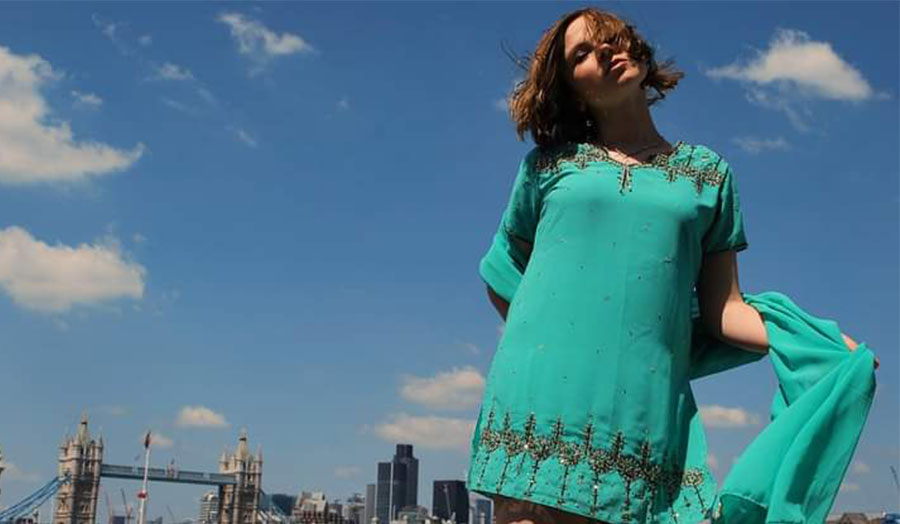Counselling Psychology Prof Doc graduate Paulina Golozd is now researching psycho-oncology (the psychological, social, behavioural and ethical aspects of cancer) at London Met. Her ultimate aim is to help counselling psychologists, healthcare professionals, cancer patients and their families in their journeys together, but also to help remove the stigma from cancer.
You’ve done a few courses at London Met over the years – what made you choose London Met in particular and keep coming back to the Uni?
My London Met adventure started in 2008 when I applied to study the Human Resource Management (HRM) MA, as I worked in HR within the NHS and I was interested in recruitment, learning and development, as well as talent management/acquisition. I remember that shortly after my application, one of the professors called me and suggested I do the PhD course in HR rather than another master’s course, as I had already two master’s from Poland – in Economics and Education in Management. I was not feeling confident enough to proceed on the PhD; however, this made me think that my education and experience were really valued by London Met.
I switched from HRM to psychology with time, as I discovered that this is my life passion. I came back another time to study a Professional Doctorate in Counselling Psychology and I was also invited to become a lecturer in undergraduate counselling and coaching courses, as I love working with students and sharing/developing new knowledge.
I feel appreciated by my lecturers and academic supervisors at London Met, and I feel they helped me to complete the full cycle of learning and development – from being a student to becoming a lecturer, researcher and also a psychologist practitioner.
You’ve participated in one or two research conferences at the University – can you explain a little more about what’s involved, and what the benefits have been for you?
I recently participated in a London Met Student and Staff Research Conference - Between Tradition and Innovation: New Research at London Met, where I delivered the poster presentation about my research in psycho-oncology and a lightening talk for students during last summer. This conference was an amazing experience and opportunity for me – and it was truly about the innovation as it was entirely online, due to the pandemic. I delivered my presentation from the forest in Warmian-Masurian Voivodeship in Poland – it was all possible due to the technology and the new reality we all faced due to Covid-19.
I understand you’re a student member of London Met’s Global Diversities and Inequalities Research Centre – can you tell us more?
The Global Diversities and Inequalities Research Centre is a fascinating place where you can get involved in research, talks and even in creating a newsletter along with experienced researchers and lecturers, who share their knowledge about inequalities stemming from class, ethnicity, faith, gender, age, generation and race. Embracing the diversity is for me embracing and appreciating my own identity, as well as the identity and uniqueness of others. London is a great place to live due to the multicultural environment and I feel I do not need to travel a lot, and after a few minutes’ drive, I can feel that I am in India, China, Poland or Iran.
What real-world impact do you think your research might have?
I am hoping that my research will help not only counselling psychologists, but also other healthcare professionals, their families and cancer patients on their journeys together, supporting the recovery, but also helping to remove the stigma from cancer.
How has your research been affected by Covid?
The new pandemic’s reality with the national lockdowns is a life-changing experience for everyone. I feel that we are a part of a massive behavioural experiment and we all respond to it differently, and we cannot deny the impact upon our lives, from our private lives to work and academia.
My research was not affected by Covid-19 as such, as all my interviews were done via Skype. Nevertheless, some of my participants, especially breast cancer surgeons, were busier due to the pandemic, but I still managed to finish the recruitment and I am in the analysis/write-up stage now.
Are you working in a related field at the same time? If so, how do you manage your work-life balance?
I work in NHS and there is a massive demand now for the psychological therapies, and all forms of support. Dealing with conflicting demands like work, placements, family and research is not always easy but it is do-able when you follow your heart and fulfil your life passions and dreams.
What’s the next step for you once you finish here?
After graduation, I plan to stay at the NHS and work as a counselling psychologist, as well as getting a lecturing job, as I really enjoy research, knowledge development and working with students.
Any advice or tips for students thinking about undertaking research?
Be brave, be daring, follow your heart. As a wholehearted researcher, try to aim to discover something unique and important, give a voice to your participants and empower them, which will benefit the wider society.

